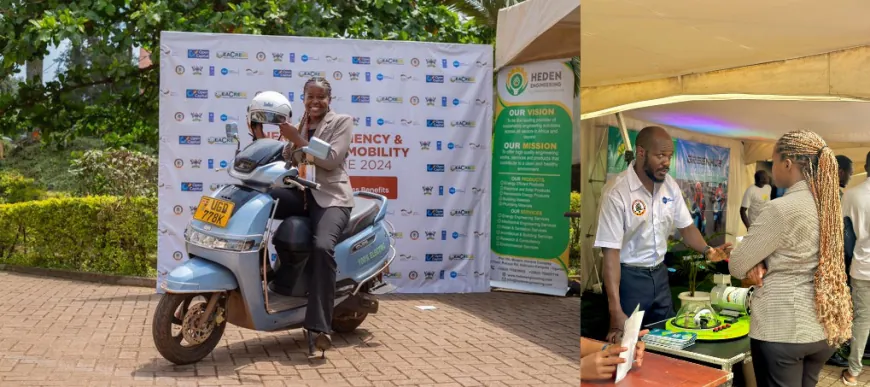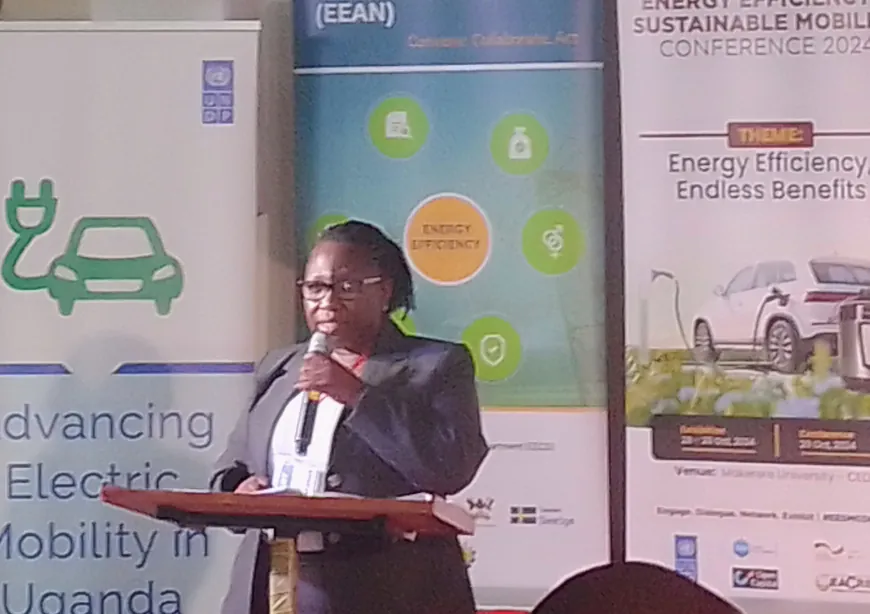Local electric motorcycles & product SMEs call for a specific policy to enhance sustainable e-mobility, energy efficiency.

Energy efficiency is very essential for reducing energy consumption without compromising performance and comfort. Through sustainably cutting down on emissions of carbon dioxide and the rest of greenhouse gases into the atmosphere.
Whereas sustainable mobility is aimed at reducing the volume of traffic, which is linked to a strong expansion of environmentally friendly means of transport, including public transport, expansion of the network of buses and trains, among others, and networking of infrastructure, including for congestion reduction and green waves.
The three pillars of sustainability include environmental, social, and economic. Sustainability, therefore, is an essential part of facing current and future global challenges, but not only those related to the environment.
The National e-Mobility Strategy from the Ministry of Science, Technology and Innovation has a bold target of Uganda fully transitioning to e-Mobility in public transport and motorcycles by 2030 and passenger vehicle sales by 2040.
The Strategy according to the Ministry of Science, Technology and Innovation, “Will be realized by creating a robust, self-sustaining and competitive e-Mobility Ecosystem in Uganda guided by principles of Ecosystem Approach; Sustainability; Supply Chain Localization; Innovation; Equity & Inclusion; Integration; Adaptability; and Information & Public Awareness”
The Automotive Industry and the world of mobility including key players such as local manufacturers of electric products are undergoing a seismic shift from traditional fossil fuels to new technologies and electric mobility is taking center stage.
Various Ugandan SMEs have taken a step toward a transition from traditional internal combustion engines to electric vehicles, motorcycles, and other electric products as a present reality.
This was during the Energy Efficiency (EE) & Sustainable Mobility Conference at Makerere University- CEDAT on 29th October 2024, Under the theme ‘Energy Efficiency, Endless Benefits,’ aimed at fostering dialogue & driving the adoption of EE and sustainable mobility solutions.

Ms. Grace Tusiime
The Under Secretary Ministry of Energy and Mineral Development Grace Tusiime in an interview said that the ministry is fast-tracking the new energy efficiency bill to support Uganda's policy measures aimed at improving the energy efficiency potential which she said is inadequate.
She however called for partnership with relevant stakeholders to make the implementation a reality and minimize the barriers to realizing full e-mobility of the transport sector and other energy efficiency measures.
“The policy of energy efficiency is inadequate. We are working to address the barriers. We need to have a legislative framework on energy efficiency to set a legal ground. We will fast-track the bill, but we need partnerships with stakeholders” she said.
She said the barriers to achieving full e-mobility include limited awareness, perceived high cost, limited finance mechanisms, technology, and poor-quality products on the markets among others.
Ms. Phomo Maphosa, SNV Uganda’s Country Director said that whereas SNV is advancing innovations in energy efficiency and sustainable mobility, promoting both clean cooking solutions and the adoption of electric mobility in rural and urban areas, she emphasized the need for an inclusive green economy that benefits vulnerable communities.
“There is a need to strengthen regulations, improve access to finance, and raise awareness to accelerate Uganda’s progress to energy efficiency that benefits vulnerable communities,” she said
Built with Ugandan craftsmanship, Green Hub a local SME has assembled a 100% electric motorcycle to participate in the drive for environmental protection. The company has provided special offers for women and youth bought under installment purchase.
Heden Engineering Company has manufactured an energy efficiency demonstration model of a hand generator connected to bulbs of different watts. This practical model aims to teach about the energy efficiency of the different appliances in our households.
The Marketing Manager, Mr. Tom Businge while explaining how it works said that though many SMEs are working hard to bring on board different energy efficiency models for use, there is a need to have a separate policy focused on energy efficiency to address the challenges faced by this unique and modern sub-sector, which he added that is the future of the global, especially minimizing the effects of climate change.
On the side of clean cooking for a safe environment, ECOCA East Africa is one of the small and medium enterprises manufacturing electric solar cookers used to warm, boil or fry food.
The Manager Mr. Byaruhange Ericc said that “at the side of the cooker, there are parts that one can use to charge phones and also put lights at the same time”
Responding to whether Uganda can achieve full electric mobility for public transport by 2030 as stipulated in the strategy of STI ministry, Mr Stuart Amanya a Business Developer said that in the Ugandan context, transitioning fully to electric mobility for public transport by 2030 is ambitious, but not impossible. Uganda has made significant strides in clean energy, particularly through investments in renewable energy like hydropower, which can support the charging infrastructure for electric vehicles (EVs). Additionally, initiatives like Kiira Motors’ electric buses and partnerships with companies like Zembo and GOGO are already laying the groundwork for electric mobility.
“Challenges remain including high upfront costs of electric vehicles, limited charging infrastructure, and the need for more supportive government policies that could slow the transition. There’s also a need for public awareness campaigns and incentives to encourage both consumers and businesses to adopt electric mobility. Rural areas may face additional hurdles, including access to reliable electricity for charging stations” he said
He added that on the positive side, Uganda’s youthful population and its increasing urbanization could drive demand for cleaner, more efficient transport. With continued investment, policy support, and public-private partnerships, Uganda can make significant progress toward this goal, even if a full transition by 2030 remains a challenge.
Uganda’s transport sector today is responsible for around 25% of carbon dioxide emissions and its share of global emissions is on the rise. Road Transport accounts for 95% of passenger traffic and 96.5% of the freight cargo and contributes over 10% on the greenhouse carbon emissions.
The sector is characterized by an inefficient public transport system utilizing imported end-of-life vehicles with an average age of over 16 years at first registration.
Uganda’s heavy reliance on imported obsolete petrol & diesel engine-powered vehicles is not only a huge drain to the economy but poses a significant risk to our socioeconomic transformation, public health, and the environment with Kampala being ranked 2nd most polluted city in Africa.












